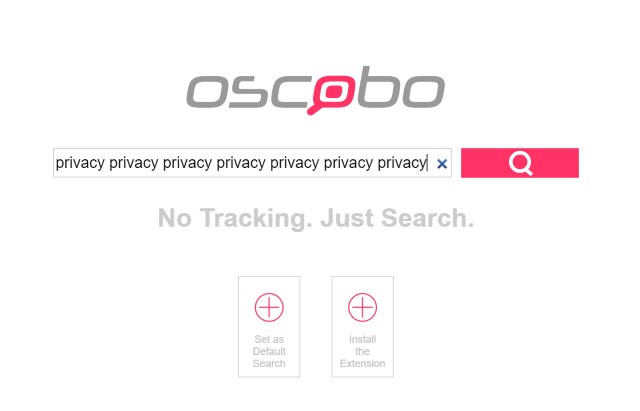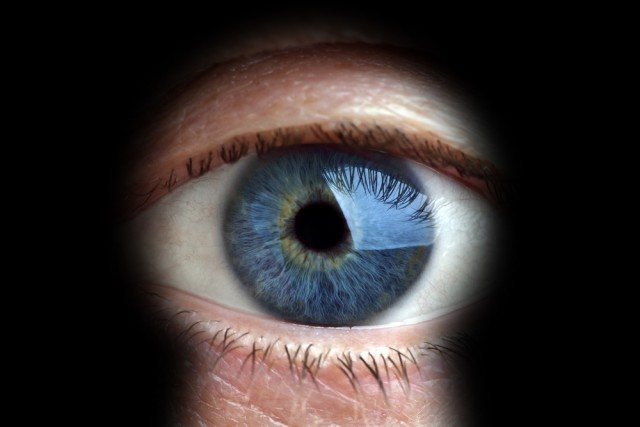
And this, boys and girls, is why online vigilantism is a terrible idea
I've written recently about the dangers of online vigilantes infringing on the free speech of others. Anonymous is one of the biggest offenders in this department, but there are numerous hacking groups that -- under the banner of fighting one evil or another -- take the law of the web into their own hands without a thought for the consequences.
Online vigilantes stir up populist support by throwing around the keywords associated with the enemy of the moment -- terrorists, ISIS, racists, fascists, communists, socialists, pedophiles. All very emotive issues, but vigilantism can all too easily get out of hand. This has just been demonstrated perfectly by YouTube star Keemstar who took it upon himself to expose a 62-year-old pedophile online through his DramaAlert podcast. The only problem is that he and his team got the wrong man.

Nvidia GPU driver bug could expose your Chrome Incognito porn browsing
If you have an online porn habit you like to indulge from time to time, you're probably well-acquainted with Chrome's Incognito mode. Like Microsoft Edge's InPrivate browsing, and Firefox's Private browsing, Google's browser includes a mode that can be used to keep your browsing secret. At least that's the idea...
One gamer and unashamed porn consumer found that his X-rated browsing sessions were exposed by Diablo III. Running the game on his Mac, Evan Andersen found that cached images from his Incognito browsing sessions were displayed as the RPG title loaded. He managed to grab screenshots of the bug in action, and even went as far as writing a program to show what's happening.

Tech firms ready to work with US spy agencies to combat IS and online terrorism
Silicon Valley met with the US government on Friday to discuss how to tackle online terrorist propaganda from the likes of IS. At a closed-door meeting, Tim Cook and representative of Facebook, Twitter, Microsoft and other tech firms spoke with White House officials to try to find a way to combat terrorists on the web.
Joined by the likes of the NSA and FBI, the technology firms, and the Obama administration are seeking ways to stop terrorist propaganda being disseminated online. IS has already proved itself to be a masterful manipulator of the media, and has successfully used social networks such as Facebook and Twitter to get its message out.

If you're fine with Microsoft's approach to privacy in Windows 10, you're out of touch
Yeah, I'm going to bang that drum again. We've talked endlessly about privacy and telemetry in Windows 10. Endlessly. It's brought up some interesting issues for debates, led to comparisons between Microsoft and Google, and lots and lots of lots of bile. A case in point is an article from dear, dear Mr Ed Bott over on ZDNet. Mr Bott refers, subtweet style, to my recent article about Microsoft recording how long people are using Windows 10.
He refers -- albeit indirectly -- to me (and writers like me who question Microsoft) as a "dedicated Microsoft hater" and a "clueless writer" peddling in clickbait. He suggests I'm not interested in facts; this despite the fact I have gone out of my way to garner such delights from Microsoft. Bott completely -- COMPLETELY -- misses the point. I can only hope he does so on purpose because otherwise he just sounds disingenuous and a bit stupid. The problem here is not that Microsoft is gathering data (as it is perfectly entitled to do so), but the lack of transparency surrounding it. Microsoft does nothing to help itself.

Oscobo is a privacy-focused search engine that won't sell your data
Using the web can mean selling your soul to the devil. Or Google. (Which you may well regard as the same thing.) With the increased interest in privacy there is a new market for tools and services that help to protect users. Catering to web users who are concerned about how Google might use search data, Oscobo is a new search engine that promises not to track users.
Founded on the belief that "personal data should remain just that -- personal", Oscobo is a UK-based company that says it won't store any data about its users, let alone share it with anyone else. With the controversy surrounding the snooper's charter, it makes sense that the privacy-focused search engine should start life in the UK, but there are plans to expand further afield to provide tailored results for people around the world.

No backdoors thanks, we're Dutch
Unlike other countries, notably the UK and China, that have been busy passing laws to allow them to snoop on encrypted communication, the Dutch government has decided that strong encryption is vital to the health of its digital economy and the privacy of its citizens.
The country's minister of security and justice Ard van der Steur writes in an official statement that the Dutch executive cabinet endorses, "...the importance of strong encryption for Internet security to support the protection of privacy for citizens, companies, the government, and the entire Dutch economy. Therefore, the government believes that it is currently not desirable to take legal measures against the development, availability and use of encryption within the Netherlands".

Why is Microsoft monitoring how long you use Windows 10?
The various privacy concerns surrounding Windows 10 have received a lot of coverage in the media, but it seems that there are ever more secrets coming to light. The Threshold 2 Update did nothing to curtail privacy invasion, and the latest Windows 10 installation figures show that Microsoft is also monitoring how long people are using the operating system.
This might seem like a slightly strange statistic for Microsoft to keep track of, but the company knows how long, collectively, Windows 10 has been running on computers around the world. To have reached this figure (11 billion hours in December, apparently) Microsoft must have been logging individuals' usage times. Intrigued, we contacted Microsoft to find out what on earth is going on.

Microsoft's promise of spying warnings is an empty gesture
Yesterday we reported that Microsoft will warn users of 'state-sponsored' attacks on their accounts. Sounds great, but does it actually mean anything? Is it a useful service by the tech giant, or just PR bluster?
Considering the covert nature of spying and digital attacks, coupled with legislation around the world, it seems likely that the announcement is little more than meaningless hot air. In the UK, for instance, the planned snooper's charter would make it illegal for companies to alert users to hacking and surveillance by British agencies.

US is spying on its allies for 'national security' purposes
Even though US president Barack Obama promised to end the eavesdropping on highly-positioned officials among US allies, which was revealed during the Edward Snowden events, it seems that some officials are still under close watch by the NSA.
Among those is the prime minister of one of US' biggest allies -- Israel. According to a Wall Street Journal report, the White House decided to keep certain high-ranking officials under close watch, including Netanyahu and Recep Tayyip Erdogan, president of Turkey.

Now that Google Glass is enterprise-only, it is more appealing than ever
The first generation of Google Glass spectacularly failed to get off the ground despite a long beta period. The second generation is on the cards, and it has an enterprise focus which serves only to make the hardware even more appealing. There's no release date, or even a vague schedule for release, yet, but images of the next version of Google Glass have appeared online.
A new filing with the FCC shows just what we can expect from the next version of Google Glass, and it's extremely promising. While there's no suggestion of a consumer model being released, what we learn about the enterprise edition will serve only to make it more appealing to the masses -- great looks, a foldable design, and a larger display. Will Google bow to the pressure that's almost certain to mount and try again with a consumer version?

Dodgy database exposes details of 191 million US voters
If you've voted in a US election at some point in the last 15 years, there's a high chance that your personal details are now out in the wild. Security researcher Chris Vickery found a misconfigured database that exposes the details of no less than 191 million US voters.
The discovery was made a little over a week ago, and includes the names, addresses, phone numbers, email addresses, state voter IDs, and party affiliations of people registered to vote since the year 2000. The amount of detail contained in the database gives real cause for concern, and Vickery was shocked to find his own details were easily accessible due to a database misconfiguration.

North Korea's Red Star OS leaves the government in control of computers
Based on Fedora Linux, you might expect North Korea's Red Star OS to be a secure operating system. It's not -- at least not by most people's standards. Like China, the socialist state is keen to embrace the power of the internet, but wants to retain control over is citizens. This s exactly what Red Star OS enables the government to do.
Germany researchers from the security company ERNW have probed Red Star OS, examined the code and determined that it is a home grown operating system that leaves the government in control of many aspects of its use, including encryption. It has been suggested that North Korea is paranoid that the west will try to infiltrate through software, but it is North Korean citizens that should be more worried.

ASUS users will see fewer ads in 2016 thanks to Adblock Plus
Ad blocking is something of a contentious issue, but it's one that has been brought to prominence in 2015. The adblockalypse arrived this year as the debate about whether disabling ad blockers was preferable to paying for content.
Adblock Plus -- one of the best known ad blockers out there -- recently updated its acceptable ads policy which gives people the option of permitting certain ads to appear in their browser. But a new deal struck with ASUS means that anyone buying a phone or tablet from the Taiwanese company in 2016 will find that ad blocking is baked in and enabled by default.

Privacy-focused Tails 2.0 beta 1 Linux distro is here -- Debian 8, GNOME shell classic, and more
With clueless politicians, the media, and scared citizens calling for a ban on encryption, it can feel like the Internet is under attack. Such basic rights to privacy are the foundation of the net -- once we lose them, it can be impossible to get back.
Unfortunately, even mundane aspects of computing, like operating systems -- which should fade into the background -- are threatening our privacy. Windows 10, for instance, sends much data to Microsoft, while Android is partly a means for Google to collect data. Traditional Linux distributions are not inherently privacy-focused, but generally speaking, many are. For the gold standard in privacy and security, Tails -- a distro recommended by Edward Snowden -- can be used. Today, the first beta of the 2.0 version operating system becomes available.

Tim Cook: Apple will not budge on encryption
With many U.S. lawmakers calling for an end to encryption, Tim Cook has decided to reiterate Apple’s stance on the matter. Apple’s CEO believes that when it comes to encryption there is no trade-off between privacy and national security.
During CBS’ program 60 Minutes, on Sunday Cook defended the need for encryption and how it important it is to Apple and its consumers. According to Cook, there is no reason why Americans should not be able to have privacy while simultaneously protecting America’s national security.